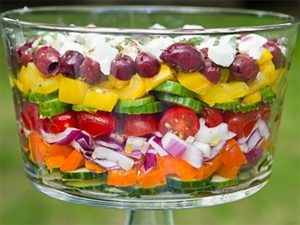What to Do About Tummy Troubles in Toddlers & Kids

Hearing the words “my tummy hurts” can make parents run for a bucket, but can also make their minds run with endless worries. How do you know if it’s serious or not? Should you take them to the doctor?
Unfortunately, kids are rarely helpful at explaining where or how much it hurts. So the next time you hear this from your kids, there are a few symptoms you can look out for to help you assess the situation.
Serious Symptoms
According to Sick Kids Hospital, if your child shows any of the following symptoms in addition to the sore tummy, you should call your doctor right away. If you can’t reach your doctor, take them to the hospital emergency department immediately:
Your child has diarrhea and vomiting AND has no tears, dry mouth or is not urinating.
Your baby under three months of age has a fever over 38.5 C or 101 F.
Your child has difficulty breathing.
Your child develops a rash that does not turn white when you push on it.
Your child has a fever and is difficult to wake up or is very sleepy.
Also, if you’re not sure how severe it is, you can talk to a registered nurse 24 hours per day at the Telehealth line for your province.
Reasons Why It May Hurt & A Few Remedies
If your child doesn’t have any of the severe symptoms above, there are still a number of reasons why their tummy may hurt and differing remedies that can help.
Food-Borne Illneses. Did you know that children have less stomach acid than adults? This means they are more prone to picking up food-borne illnesses. If your child has diarrhea from a food bug, you can try countering it by giving them a strain of probiotic called Saccharomyces Boulardii. (Note: It’s not recommended for immunocompromised individuals). Unlike most probiotics, boulardii is a good type of yeast vs. a good bacteria. This means it can also be taken with antibiotics to avoid antibiotic-induced diarrhea.
Although boulardii is available in capsules, it can be opened and added into anything, since it’s flavourless. Personally, I have tricked my extremely picky son into having it by sprinkling it over his buttered toast. I will warn you that as it is a type of yeast, if it is added to any dairy it can sour and curdle; this would not be a good way to make anyone feel better! So ensure whatever you add it into, is going to be something they will consume relatively quickly.
The best foods choices for diarrhea are in the BRAT diet (banana, rice, apple sauce, and toast).
Constipation. This is a more common culprit of tummy pain than diarrhea. Constipation is generally caused by 2 dietary factors; a lack of water, and not enough fibre. Having water available that children can sip on throughout of the day is the easiest way to avoid constipation. If your child is not a big water drinker, try adding different shaped and flavoured ice cubes or frozen fruit to the water to make it more interesting.
You can boost your child’s dietary fibre by increasing fruit (but not bananas), vegetables and whole grains and avoiding refined grains. Refined grains have had the fibre removed to make them white such as white bread, white rice and regular pasta. Try switching it up to ancient grain breads, brown or wild rice and whole grain pasta. If your child is currently constipated, try dried fruit. People tend to think of prunes for constipation, but raisins and dried apricots work too. Many kids really like dried apricots because they are bright orange, sweet and chewy like candy.
Vomiting. For upper gastrointestinal pain (throwing up vs. diarrhea), ginger is ideal for settling a stomach. Remember having flat ginger ale as a kid when you were sick? There’s something to that. Unfortunately, not many ginger ales today have enough actual ginger to help. Instead try real ginger candies. My personal favourite are called gin-gins, although there are other brands too. These can help to calm a stomach, and are a dream come true for those that get car sick. As a bonus, they can be used by parents who have finally gone on a night out with their friends, only to remember the next morning that drinking like they did when they were in their early 20s does not end well!
Other Causes. If you notice your child complaining of stomach pains frequently, it could be a symptom of something else including anxiety, depression, food sensitivities or allergies. In order to help your doctor find the root cause, keep a diary of their food, elimination and mood. Write down everything they are eating and drinking, include what time and type of bowel movement they are having. Then add in any mood changes that occur throughout the day, this will allow your health care practitioner to look for patterns.
Overall as everyone knows, one of the best things for an upset tummy is cuddles from mom or dad. So take the opportunity to snuggle your little one – it will likely make you both feel better.












